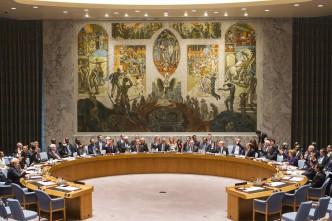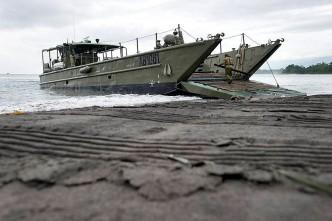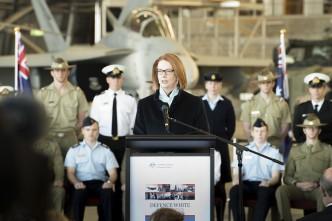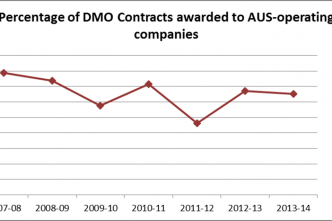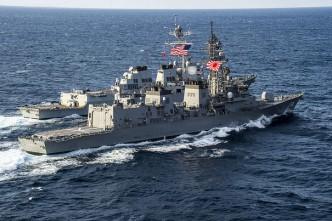According to the South Australian government, the Australian economy will be better off by $21 bn if our next generation of submarines is built in-country rather than purchased from overseas. With the Abbott government likely …
Emma Alberici’s recent Lateline interview with Hizb ut-Tahrir’s Australian spokesperson, Wassim Doureihi, prompted the Prime Minister to state he’s reviewing the Islamist group after calls for it to be banned. The group’s spokesperson repeatedly dodged questions about …
Australia will rotate off the UN Security Council on 31 December 2014. As previously outlined here, there have been several high-profile political successes during our term, including leading the adoption of resolutions tackling illicit small …
A request for UN mediation, and the discord evident at the Committee of Noumea Accord Signatories on 4 October, show that old wounds are reopening in New Caledonia as pro-France and pro-independence groups stake their …
Jan Gleiman and Harry White’s latest post argues that regional militaries should consider land-based anti-ship missiles within their modernisation programs. That discussion’s both timely and relevant. And, indeed, the Australian Army has recently been looking at …
The Australian Institute of International Affairs ran a high-quality conference in Canberra yesterday around the theme of ‘Foreign Policy for a Top 20 Nation’. It’s an intriguing theme, obviously informed by the G20 leaders’ meeting …
I was pleased to be asked to speak a few weeks ago at the ADM Northern Australia Defence Summit in Darwin. I hadn’t been there since 2006, and it was interesting to see just how …
Fans of English Premier League soccer may be aware of the phenomenon known as the ‘Manager of the Month’ effect. According to that, a team’s performance tends to drop the month after its coach has …
Julia Gillard writes that she inherited ‘unrealistic’ defence settings from Kevin Rudd and hints faintly that she bequeathed the same to the Abbott government. Just as Gillard needed a new defence policy because of Kevin …
Could future wars be fought between robots? CNAS’ Paul Scharre has a new report that examines how swarms of ‘cooperative, autonomous, robotic systems have the potential to bring greater mass, intelligence, coordination, and speed to …
Recent events, rumours and reports have cast a light on the future of Australia’s defence industry. High-profile considerations have centred on shipbuilding and submarines with the ongoing Senate Economics References Committee Inquiry, ministerial and prime-ministerial …
Unconventional warfare isn’t popular among Western strategists these days. Whether it’s supporting insurgent groups (the strict definition) or supporting militias allied with government forces, proxy warfare has a bad reputation. The complex situation in Syria …
Last month the Terrorism Research and Analysis Consortium (TRAC) estimated that as many as 15% of ISIS’ foreign recruits could be female, with up to 200 women from at least 14 different countries known to …
‘Big History’ is all the go at the moment. This is a relatively new way of attempting to explain what’s occurring today by searching for deeper trends that are shaping events. Its popularity’s understandable—particularly when …
Recently, the US and Japan released the Interim Report on the Revision of the Guidelines for US-Japan Defense Cooperation (PDF). The revision’s the first since 1997 and occurs in the context of Asia-Pacific power shifts. …
Gough Whitlam helped Australia think about finding its security in Asia, not to seek security from Asia. Not least of Whitlam’s achievements was to make Australia colour-blind, in both word and deed. Harold Holt’s government, …
I was pleased to be invited to speak at the South Australian Government’s Defence Industry Policy Summit (PDF) earlier this week. I was invited in my role as a member of the Defence White Paper Expert …
It has been a busy week for those on the international cyber circuit. ICANN51 wrapped up in Los Angeles on Thursday and the three week ITU Plenipotentiary (PP-14) in Busan kicked off on Monday. Those …
Late last year, as the bilateral relationship between Australia and Indonesia struggled with the revelations of the spying scandal, Colin Brown, an adjunct professor at the Griffith Asia Institute, described the history of the relationship …
Gough Whitlam was a physical giant with an intellect to match. His flaws were pretty sizeable, too, and the pygmies who beset him were often from his own party. His self-mocking humour was immensely appealing, …


